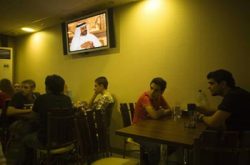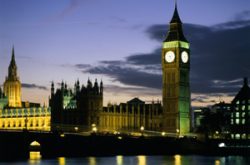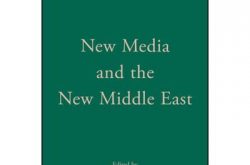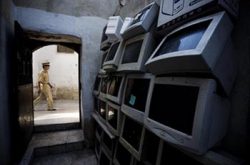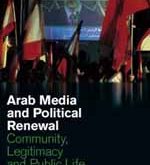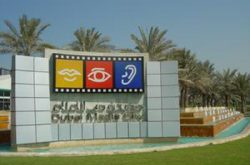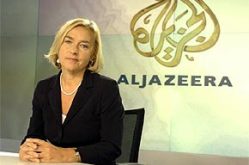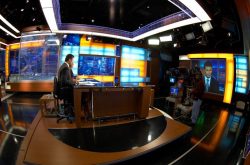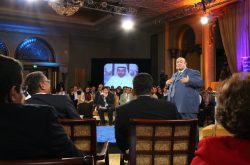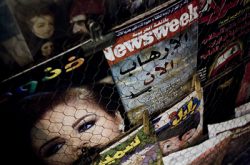The Arab Satellite Charter is not an attempt to create an Arab version of the FCC, but rather a move to control the minds and thoughts of Arab viewers, mostly on political issues, writes Daoud Kuttab.
Read More »Arab World
The rise and decline of London as a pan-Arab media hub
Why is London losing its appeal as an Arab media hub? Not much has changed about Britain as a host, but structural shifts in the industry and a changing political landscape have combined to reduce the need for an offshore base, writes Najm Jarrah.
Read More »BOOK REVIEW | New Media and the New Middle East
While the strength of the writing and research varies by chapter, New Media and the New Middle East adds valuable data to a field where usage statistics and baseline information about audiences and advertising are virtually non-existent, says Book Reviews Editor Courtney C. Radsch.
Read More »Taking Stock
Why was 2007 one of the deadliest years for Middle East reporters since World War II? Publisher and Co-Editor Lawrence Pintak looks back at a year of troubling trends for journalism in the region.
Read More »BOOK REVIEW | Arab Media and Political Renewal: Community, Legitimacy and Public Life
“While many contributors present fresh ethnographic research and �their weak arguments, inconclusive results and poor editing undermine the collection as a whole,” argues Anna Swank in her review of Arab Media and Political Renewal: Community, Legitimacy and Public Life.
Read More »Dubai: An emerging Arab media hub
Dubai is fast becoming a global media hub – but for whom? Dana El-Baltaji examines Dubai’s business-friendly media model and its implications for the future of media in the Emirates.
Read More »Interview: Sue Phillips on Al Jazeera International’s First Year
October 2007. Speaking to Arab Media & Society’s George Weyman in July 2007, Sue Phillips, London bureau chief for Al Jazeera International, reflects on the network’s first year and the changes and challenges that lie ahead.
Read More »The Alhurra Project: Radio Marti of the Middle East
Larry Register’s forced departure from the US public diplomacy channel marks a low point for American efforts at broadcasting to the Middle East, an entirely predictable debacle which likely puts paid to even the slender hopes that the station might turn itself around argues Editorial Board Member Marc Lynch.
Read More »The Arab Broadcast Forum 2007: Self-criticism surfaces despite some sidestepping
The Arab Broadcast Forum both intentionally and inadvertently exposed some of the obstacles that continue to plague Arab World television media, as well as the conference’s own shortcomings. But its ability to critically examine these things?despite some flaws?demonstrates that the Arab media is at least on the right track, says Abigail Hauslohner.
Read More »Do National political systems still influence Arab media?
Although recent changes in information technology, especially the growth of satellite television, have had an impact on Arab media, making national borders more porous, existing national political systems are still a dominant variable affecting the structure and behavior of Arab media, argues Editorial Board Member William A. Rugh.
Read More » Arab Media & Society The Arab Media Hub
Arab Media & Society The Arab Media Hub
